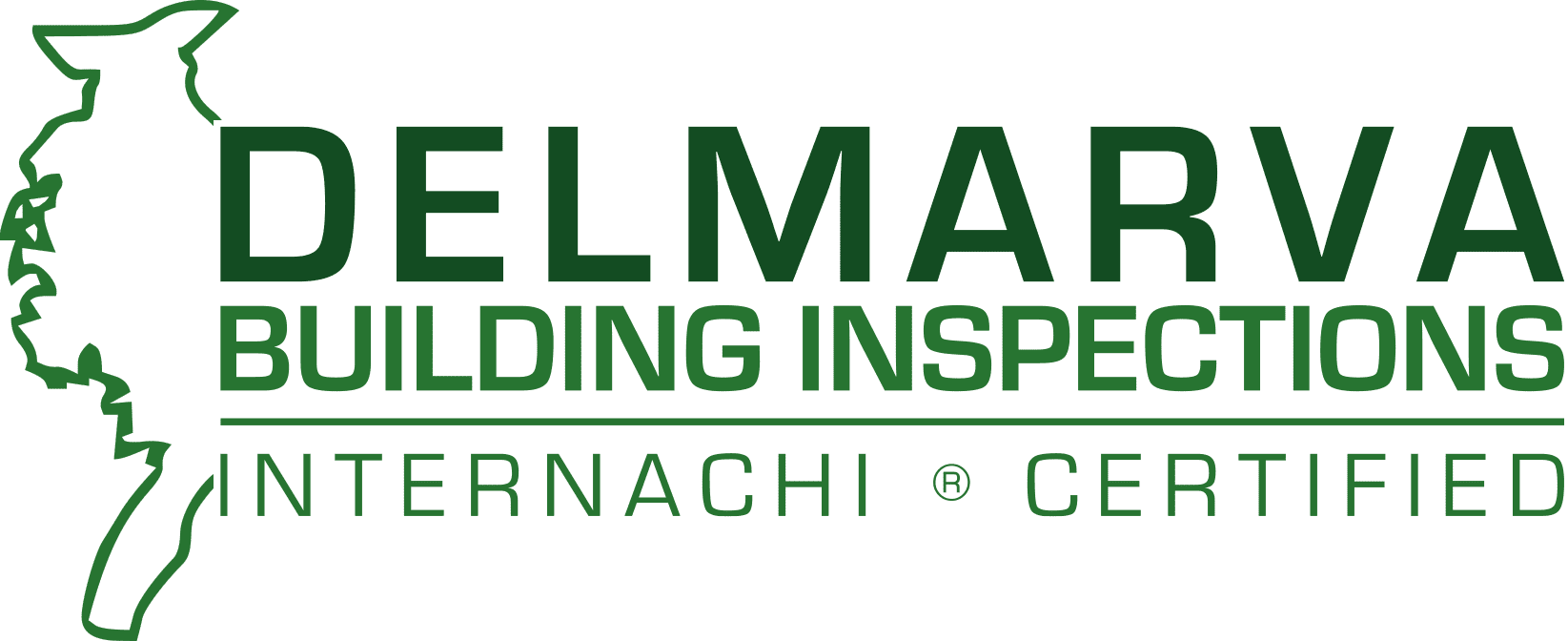

Your Commercial Building Inspector In New Castle County, Delaware
Are you selling, buying, or leasing a building? Then you require a commercial building inspection. At Delmarva Building Inspections, we'll have you covered with a top-notch building inspector to meet the demands of your structure. Whether you need your sewer line, well water, septic tank, or you need testing for radon. Whatever the case, we're always up for the challenge and never leave a stone unturned. We're your New Castle County, Delaware, commercial building inspection company.

Check List for Your Commercial Building Inspector
The foundation of a building is extremely important as it serves as the base upon which the entire structure is built. Equally important, a strong and stable foundation is essential for the safety, integrity, and longevity of a building. Your commercial building inspector will typically check the following items when inspecting a building's foundation:
Inspecting The Foundation
- Condition of the foundation walls: The building inspection will include checking for cracks, settling, or other signs of damage.
- Water infiltration: They will look for evidence of water infiltration in the foundation, such as water stains or mold.
- Drainage: Your inspector will check to ensure that the building has proper drainage to prevent water from accumulating around the foundation.
- Levelness: They will check to see if the foundation is level and plumb.
- Vents: Vents get checked to ensure they have proper ventilation to prevent moisture buildup and mold growth.
- Crawl space: If the building has a crawl space, Your building inspector will check for proper ventilation, insulation, and evidence of water infiltration or pests.
- Structural Integrity: During the inspection, they will check for any signs of structural failures, such as bowing or cracking walls.
- Type of foundation: The building inspector will check the foundation type and its suitability for the location and soil condition.
Please note: The above list is a general overview, and the inspection may include or exclude some items depending on the specific case and regulation. In addition, every inspection is different and has different requirements. For example, some owners may or may not want the foundation inspected, while others might want to have it checked.
The Most Decorated Commercial Building Inspector Company in New Castle County, Delaware
- Maryland State Contractor License #79009
- Delaware State Contractor License #2016600660
- FAA Certified Unmanned Aerial System Pilot) 10387655 - 20220831-00677
- OSHA HAZWOPER #183328
- PESTICIDE APPLICATOR DE 22-253
- Maryland State Residential Home Inspector #33884
- Delaware State Residential Home Inspector #H4-0010181
- Delaware Certified Mold Inspector
- InterNACHI Certified Professional Building Inspector (CPI), NACHI 61092825
- IICRC Water Damage Restoration Technician
- FAA Part 107 Certificate
- Maryland Certified Mold Inspector
- EPA LEAD SAFE FIRM NAT-F172/84-2
- Certified Private Pilot with Instrument Rating
- Certified Supervisor For EPA AHERA (Asbestos Abatement)
We Cover All the Great Cities, Towns, and Villages in New Castle County, Delaware
If you require a building inspection in New Castle County, Delaware, we have you covered with the service and value you would expect from a top-rated building inspection company.
Service areas
Arden, Ardencroft, Ardentown, Bellefonte, Clayton, Delaware City, Elsmere, Middletown, New Castle, Newark, Newport, Odessa, Smyrna, Townsend, Wilmington
Radon is a byproduct of uranium decomposition. It is an inert gas that may enter a building through foundation fractures and other openings. It is tasteless, odorless, and colorless. Radon may enter a home through the same cracks that allow other soil gases to enter. Your business building inspector may have further information regarding radon. Learn More
Observing the components of a structure conveniently near the ground reveals a great deal about its condition. In addition, we will document the presence of wood-eating insects and other pests in the report. Let's face it, every homeowner is concerned about termites, even though they may get eradicated if the problem is detected early. Learn More
Did you know that the Environmental Protection Agency (EPA) does not regulate privately owned wells in the United States? The property owner is ultimately responsible for assuring the purity of all drinking water sources. If you need assistance testing the water in your Delaware house or company, we have the water quality specialists that can assist you. Learn More
If you want an inspection of a sewage line, one of our trained inspectors can assist you. Are you considering selling your house or building? Examining a property's sewer system is a terrific approach to attracting potential purchasers. Doing this demonstrates to potential buyers that you care about their interests as much as your own. Learn More
The sale of a building or property exposes both licensed brokers and individual sellers with a number of challenges. On the contrary, a few things are more challenging than collecting high-quality still and moving images. With the growth of drones and the recent introduction of new FAA restrictions, high-quality aerial photography is now accessible to a greater number of people. Learn More
You should include lead-based paint assessments in all commercial and residential building inspections commissioned by a property owner. We are specialists in all local, state, and federal laws and regulations. In addition, the Environmental Protection Agency (EPA) has certified our firm as a Lead-Safe Certified Company NAT-F172/84-2 in accordance with its criteria. Learn More
Do you plan to purchase, sell, or rent a new structure? The next step is to have it checked out professionally for mold. Prioritizing a mold inspection is essential when evaluating a building, but you must request it. Your building inspector is equipped with the latest tools and equipment when inspecting for mold. Learn More
There have been notable technological strides in the field of thermal imaging. Advanced high-resolution cameras, proficient in detecting even the slightest temperature variations, along with real-time image analysis software, have made thermal imaging an indispensable asset in a wide range of industries. Learn More
Licenses & Certifications
Your Commercial Building Inspector Will Check For A Well- Maintained Building
The exterior of a building is important for several reasons. First, it serves as the first line of defense against the elements, protecting the interior of the building from moisture, wind, and other weather-related damage. A well-maintained exterior can help prolong the life of a building and reduce the need for costly repairs. Most importantly, the overall appearance and curb appeal of a building affect the value and desirability of the property. An exterior inspection of a building typically involves the following:
Exterior Building Inspection
- Wall Inspection: Checks for any cracks, holes, or signs of water damage on the walls. They will also check for proper insulation and ventilation.
- Roof Inspection: Looks over the area for any missing, damaged, or worn shingles or tiles, as well as any signs of water infiltration. They will also check for proper ventilation and flashing.
- Windows and Door Inspection: Makes sure of proper operation and any signs of damage or wear. They will also check for proper installation and weather stripping.
- Inspection of exterior siding or cladding: Assesses for any signs of damage or wear, as well as proper installation.
- Decks, patios, and other exterior structures: Checks for any signs of damage or wear, as well as proper installation and safety features such as handrails.
- The exterior grading and drainage inspection: Includes a check for proper grading and drainage to ensure water is directed away from the building.
- Exterior lighting and electrical outlets: Reviews the exterior lighting fixtures, and electrical outlets to ensure they are in working condition and safe.
In any event, the above list is a general overview, and the inspector may include or exclude some items depending on the specific case and regulation.
Appliances Such As Water Heaters Are Key To Your Building Inspection
An appliance inspection is important because it can help identify potential safety hazards and issues that can affect the function and longevity of appliances. Additionally, it can also help identify issues that may lead to increased energy consumption and higher utility bills. A building inspector will typically check the condition of appliances in a building as follows:
Appliance Inspection
- The HVAC (heating, ventilation, and air conditioning) system: The check will include proper operation and any signs of wear or damage to the furnace, air conditioning unit, ductwork, and thermostat.
- The plumbing system: Your inspector will check for proper operation and any signs of leaks or damage on the water heater, faucets, toilets, and other fixtures.
- Inspection of appliances: This will include a check for proper operation and any signs of wear or damage on appliances such as the refrigerator, oven, stove, dishwasher, and garbage disposal.
- The electrical system: The inspector will check the electrical panels, wiring, and grounding systems. They'll check for any signs of wear or damage and any potential hazards.
- Proper working exhaust systems: The commercial building inspection will check for proper operation and any signs of wear or damage on the exhaust systems for appliances such as the oven, stove, and bathroom fans.
- Safety features: Safety checks for the presence and proper operation of safety features such as carbon monoxide detectors and smoke alarms.
- Operation check: The building inspector will check if the appliances are in working condition and if they are safe to use.
Again, note that the above list is a general overview, and the inspector may include or exclude some items depending on the specific case and regulation. For example, not all properties require an appliance inspection.
Your Highly Qualified Mold Inspector, In New Castle County, Delaware
A mold inspection is important because it can help identify the presence of mold in a building and determine the type and extent of mold growth. For example, your commercial building inspector in New Castle County, Delaware, will typically check for mold in a building as follows:
Mold Inspection
- Visual inspection: This will include identifying visible signs of mold, such as discoloration, stains, or musty odors in areas such as bathrooms, basements, and attics.
- Moisture measurement: We use state-of-the-art equipment such as moisture meters or infrared cameras to check for high moisture levels in building materials and identify potential mold growth areas.
- Testing: Your commercial building inspector may take samples of any visible mold to have it tested in a lab to determine the type of mold present and its potential health risks.
- HVAC system inspection: HVAC systems are notorious for mold. So your inspector will scrutinize the HVAC system for signs of mold growth, including musty odors, discoloration, or visible growth.
- Plumbing system: The building inspector will check for leaks, condensation, or other potential sources of moisture that could lead to mold growth.
- Inspection of the exterior: The inspector will check the exterior of the building for poor grading, improper drainage, and other conditions that could lead to water infiltration and mold growth.
- Attic and crawl spaces: The commercial building inspection will check for proper ventilation, insulation, and evidence of water infiltration or mold growth.
Please note that the above list is a general overview, and the inspector may include or exclude some items depending on the specific building and regulation. However, if a mold inspection is required, your commercial building inspector will have specialized training in mold inspection.

















